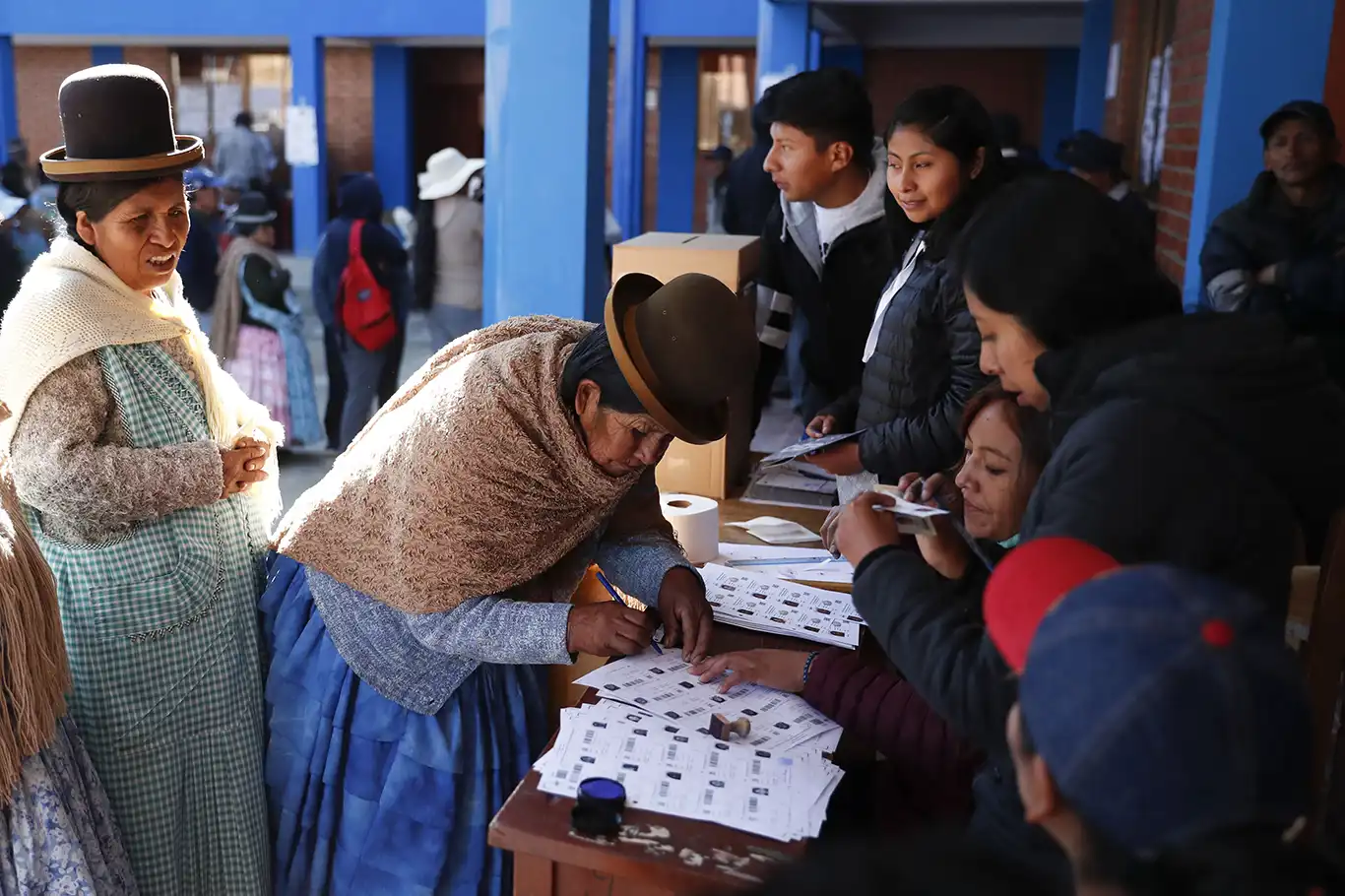Bolivia heads to historic runoff after voters reject MAS Party


Bolivia’s presidential election on Sunday has ushered in a historic political shift, setting the stage for an unprecedented runoff on October 19 after voters delivered a decisive rebuke to the ruling Movement Toward Socialism (MAS) party.
Centrist Senator Rodrigo Paz and right-wing former President Jorge “Tuto” Quiroga emerged as the top contenders, securing 32% and 26% of the vote, respectively, in the first round. The results eliminated MAS-aligned candidates, signaling the end of nearly two decades of dominance by the party founded by Evo Morales.
Paz, a former mayor from a prominent political family, campaigned on a platform dubbed “Capitalism for All,” promising lower tariffs, reduced taxes, and expanded access to small loans for entrepreneurs to tackle Bolivia’s worst economic crisis in four decades.
The results mark a dramatic decline for MAS, which rose to prominence under Morales during the early 2000s “pink tide” in Latin America, expanding Indigenous rights and social programs funded by natural gas revenues. However, Morales’ legacy has been marred by allegations of authoritarianism and sexual misconduct. Barred from running due to term limits, Morales urged supporters to cast null ballots, contributing to an unusually high 19% of invalid votes.
Official MAS candidate Eduardo del Castillo received only 3.2% of the vote, while Senate President Andrónico Rodríguez, previously considered the party’s strongest contender, secured just 8%. The fractured party, coupled with declining public approval for outgoing President Luis Arce amid economic mismanagement, handed the opposition a historic opportunity. “Democracy has triumphed!” Arce acknowledged in a statement.
Bolivia’s economy has been hit hard by soaring inflation, which surged from 2% two years ago to 25% last month, alongside fuel shortages and a scarcity of U.S. dollars for essential imports, including wheat. Public disillusionment with MAS, combined with the economic crisis, has prompted speculation that Bolivia may shift its foreign alignment away from China and Russia toward closer ties with the United States.
As Bolivia prepares for its first presidential runoff since returning to democracy in 1982, Paz and Quiroga will compete for leadership in a nation eager for economic recovery and political renewal. Voting on Sunday proceeded largely peacefully, even in volatile regions such as Morales’ Chapare stronghold. “Now, the ball is in the hands of the Bolivian people,” Arce said, as the country braces for a pivotal moment in its democratic journey. (ILKHA)
LEGAL WARNING: All rights of the published news, photos and videos are reserved by İlke Haber Ajansı Basın Yayın San. Trade A.Ş. Under no circumstances can all or part of the news, photos and videos be used without a written contract or subscription.
Hospitals across the Gaza Strip have received the bodies of at least 60 civilians over the past 24 hours, while 344 others were admitted with injuries from ongoing Israeli attacks, according to Gaza’s Health Ministry.
A brutal attack on a pool hall in Santo Domingo late Saturday left seven people dead, marking the latest in a series of massacres fueling Ecuador’s escalating gang violence crisis.
Spain is grappling with one of the deadliest summers in its history as extreme heat has killed at least 2,405 people and fueled massive wildfires that have already destroyed more than 120,000 hectares of forest.